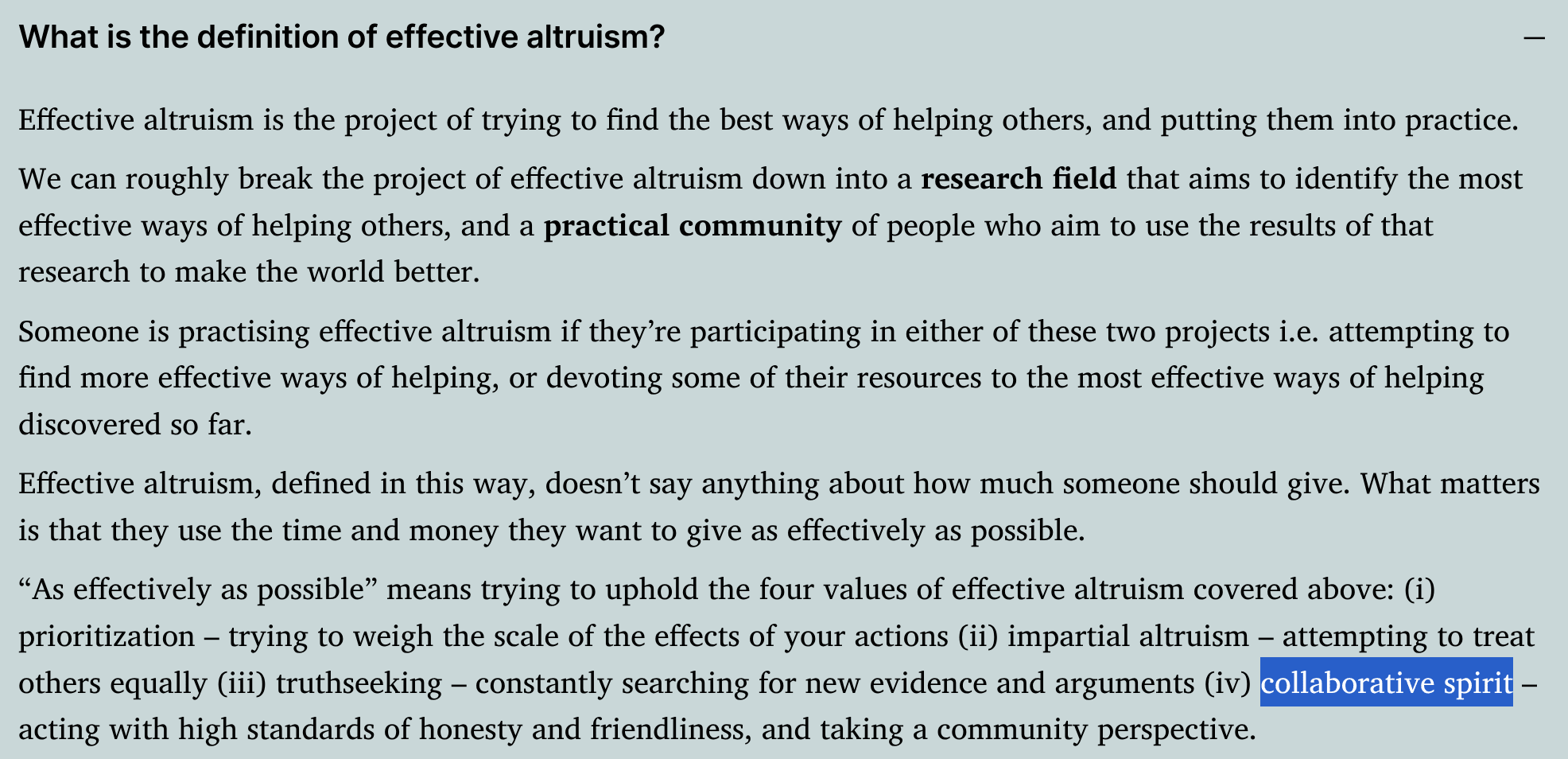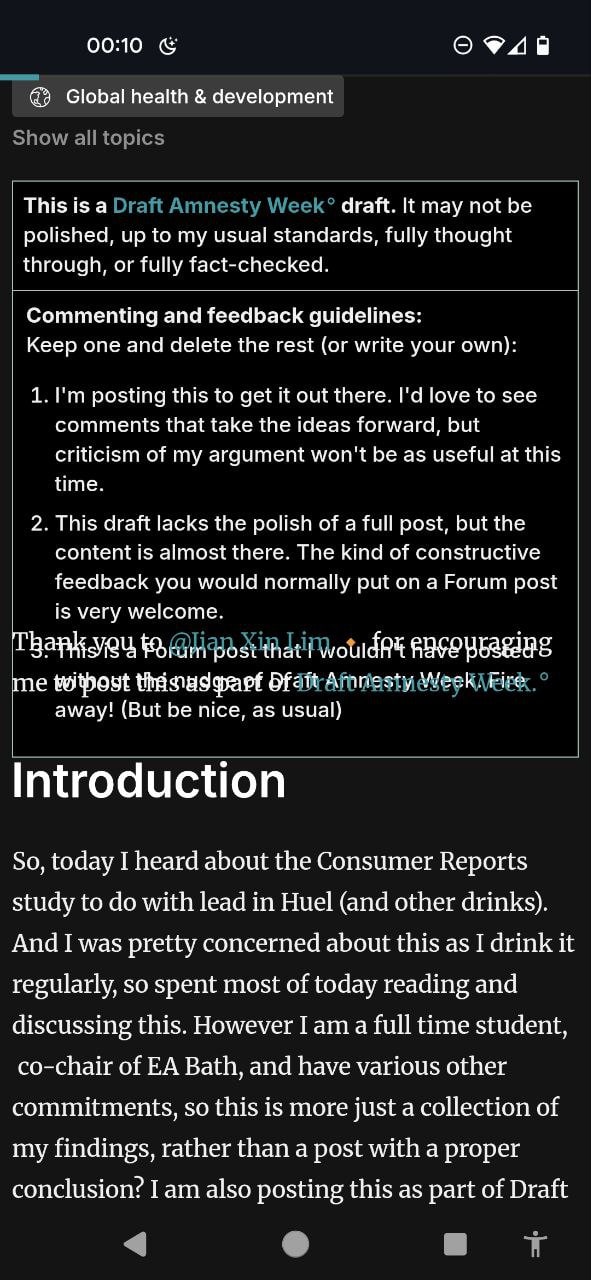
Lorenzo Buonanno🔸
Bio
Software Developer at Giving What We Can, trying to make giving significantly and effectively a social norm.
Posts 12
Comments664
Topic contributions7
Thank you! Quick note that "money not being yours" is not what I personally believe or wanted to convey in the post. I (sometimes) think my money is my votes, and I want to use them to vote for the things I think are most valuable.
I think it was Amrit's great post and others that mentioned things like "I don’t think there’s an especially important sense in which “my” money is mine"
Not run by Giving What We Can, see GWWC is retiring 10 initiatives.
If there is enough interest, I guess people could self-organize like with the first one
Quick flag that the FAQ right below hasn't been updated

Not sure how useful this is, and you mentioned you can't speak for the choice of principles, but sharing on a personal note that the collaborative spirit value was one of the things I appreciated the most about EA when I first came across it.
I think that infighting is a major reason why EA and many similar movements achieve far less than they could. I really like when EA is a place where people with very different beliefs who prioritise very different projects can collaborate productively, and I think it's a major reason for its success. It seems more unique/specific than acknodwledging tradeoffs, more important to have explicitly written as a core value to prevent the community from drifting away from it, and a great value proposition.
As James, I also found it weird that what had become a canonical definition of EA was changed without a heads-up to its community.
In any case, thank you so much for all your work, and I'm grateful that thanks to you it survives as a paragraph in the essay.
It looks like this is driven entirely by Givewell/global health and development reduction, and that actually the other fields have been stable or even expanding.
This seems the opposite of what the data says up to 2024
Comparing 2024 to 2022, GH decreased by 9%, LTXR decreased by 13%, AW decreased by 23%, Meta decreased by 21% and "Other" increased by 23%
I think the data for 2025 is too noisy and mostly sensitive to reporting timing (whether an org publishes their grant reports early in the year or later in the year) to inform an opinion
Hopefully this is auspicious for things to come?
My understanding is that they already raise and donate millions of dollars per year to effective projects in global health (especially tuberculosis)
For what it's worth, their subreddit seems a bit ambivalent about explicit "effective altruism" connections (see here or here)
Btw, I would be surprised if the ITN framework was independently developed from first principles:
- He says exactly the same 3 things in the same order
- They have known about effective altruism for at least 11 years (see the top comment here)
- There have been many effective altruism themed videos in their "Project for Awesome" campaign several years
- They have collaborated several times with 80,000 hours and Giving What We Can
- There are many other reasonable things you can come up with (e.g. urgency)



Thanks! I wouldn't overgeneralize the model of "money as votes": I'm not an economist but I think the situation in practice is much more complex and wouldn't apply well to "burning money" (e.g. buying things gives the market information and incentives, and central banks have a target inflation rate, so your "votes" wouldn't be redistributed in the way you'd expect)
I do find it a useful model to keep in mind when thinking about spending, and I think it applies well enough to "yachts/pizza vs bednets" to be useful.